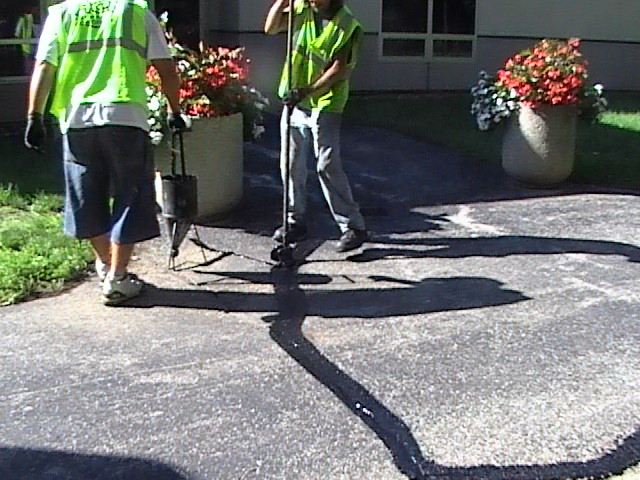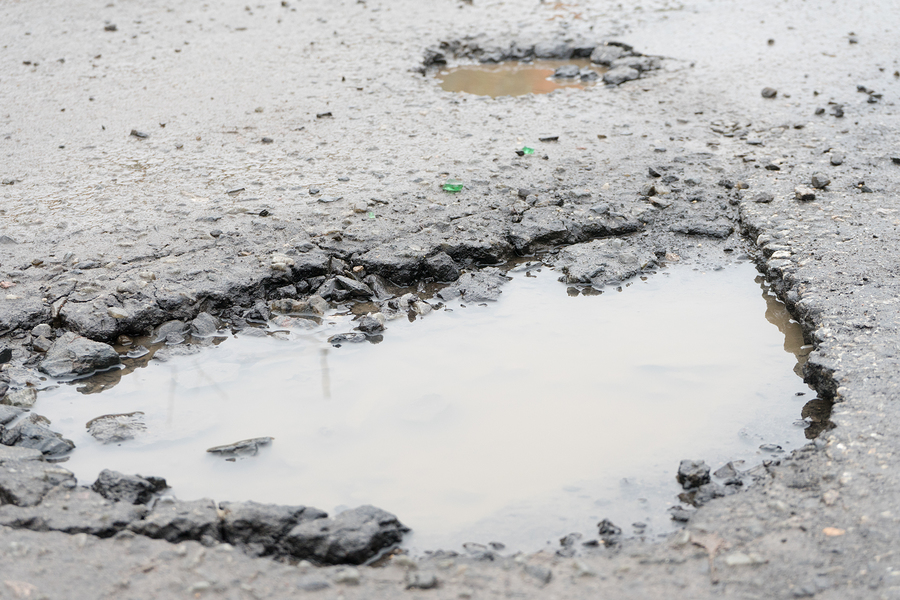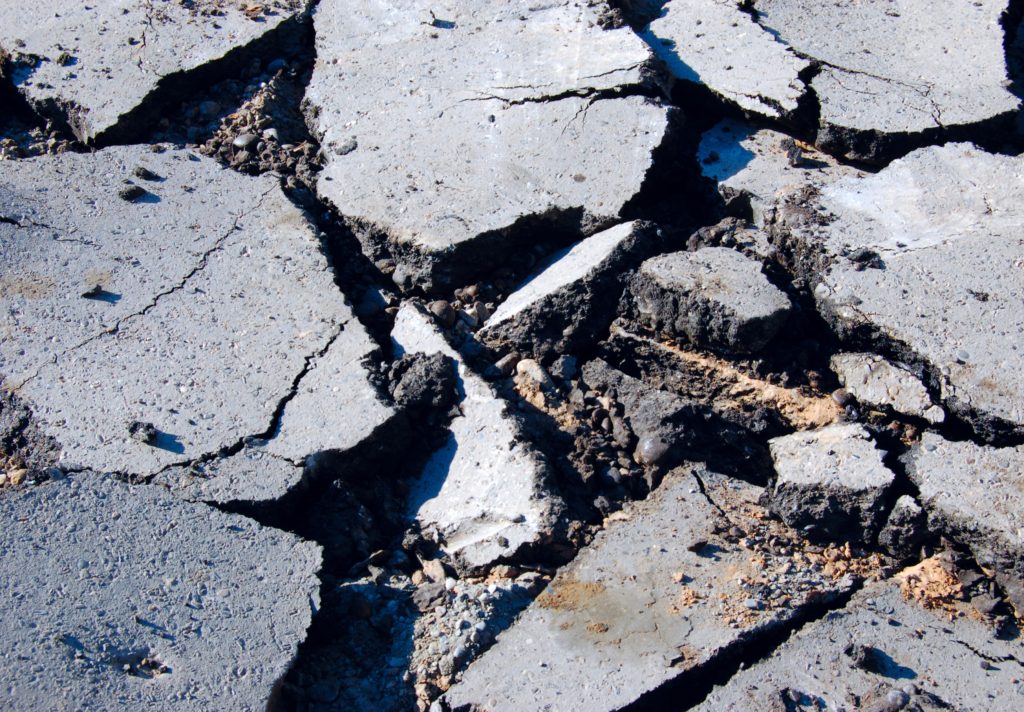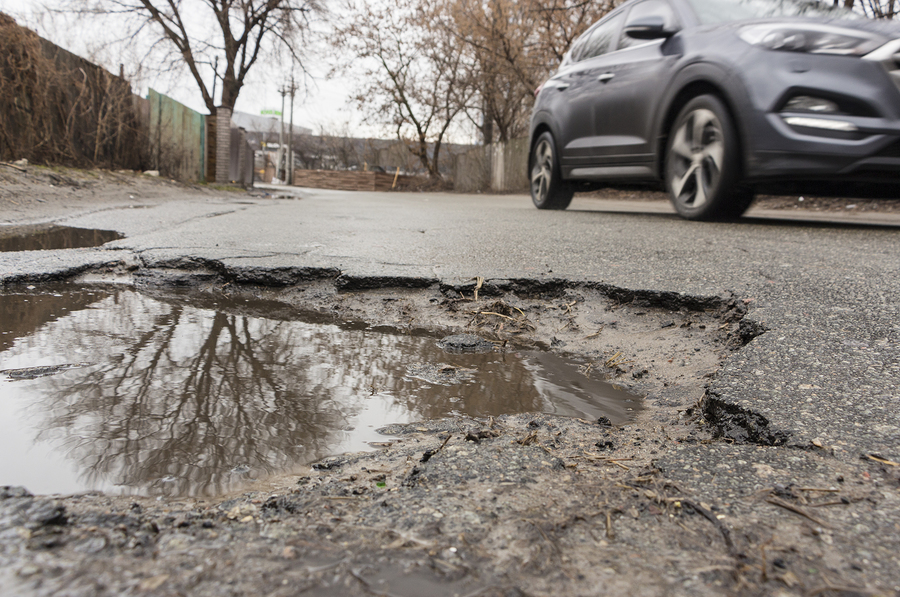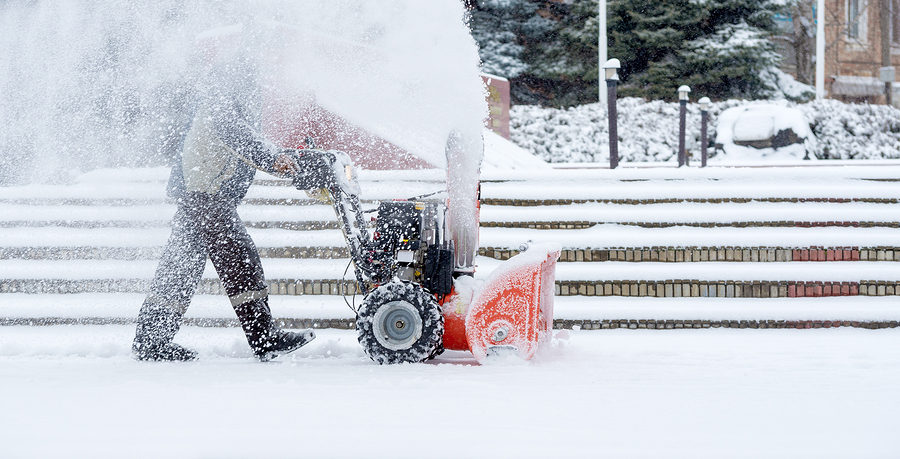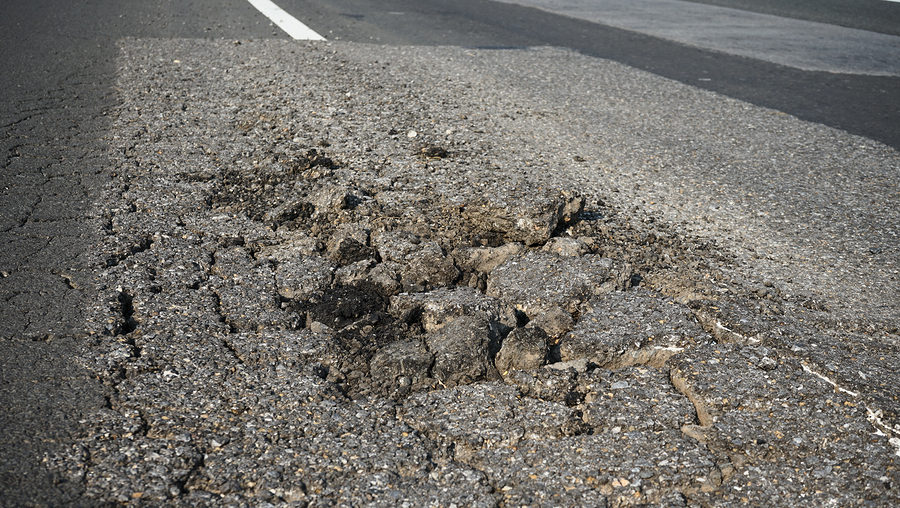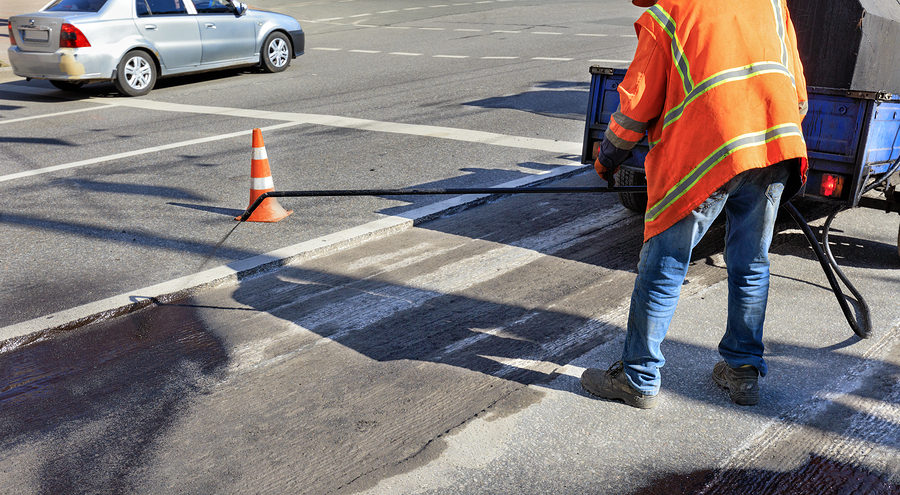Although it’s not prime pothole season, they are still a problem that can arise at any time of the year. This fall season, you can ensure that your commercial property’s pavements remain in good condition well into next year by repairing any potholes or surface damages before winter hits. Continue reading to learn the importance of pothole repair for commercial complexes and municipal roadways.
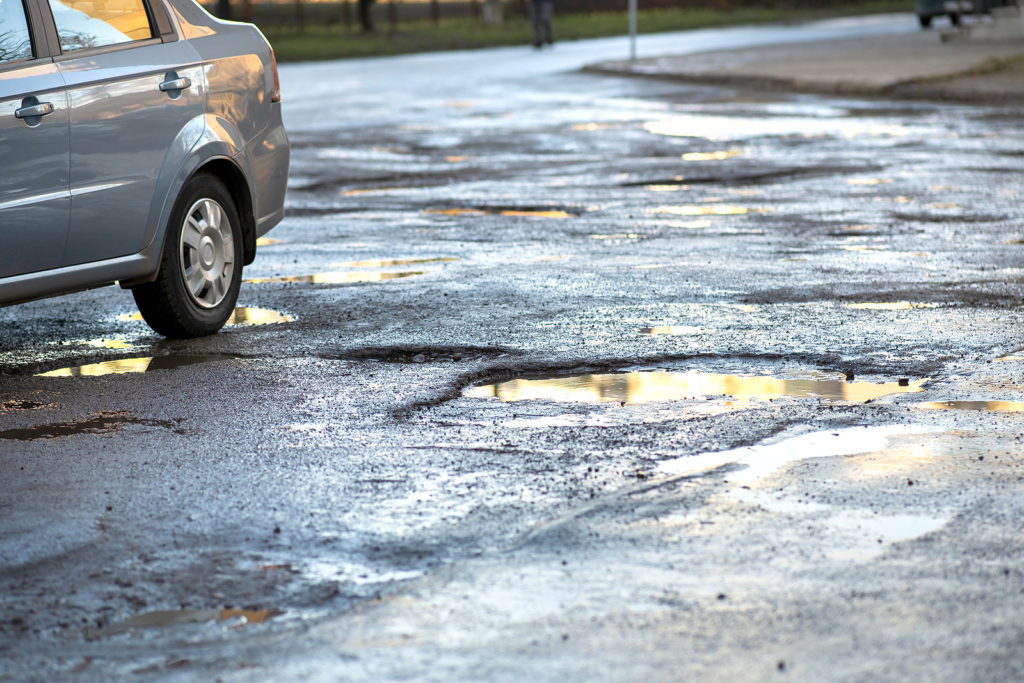
The Basics of Pothole Formation
Potholes are created by excess moisture in asphalt and concrete pavements. This is usually a result of snow, ice, and rain. Porous pavements, like concrete, lose their protective coating after a few years as a result of natural wear and tear. The same can happen to asphalt paving as well. When this happens, they become vulnerable to water accumulation in their pores. Accumulated water then freezes and thaws from season to season, causing pavement to deteriorate from within. This leads to pavement cracks, fractures, fissures, and more.
Water can seep deep down into the cracks and pores of pavement and weaken the base soil beneath it. It can then freeze and melt several times over further jeopardizing the ground level and solidity. When water freezes, the ground underneath expands, causing the pavement to rise. Once the water thaws, the ground goes back to normal but the pavement it still elevated. Naturally, this creates stability issues that eventually lead to crumbling pavement or crater holes. So, you see, the need to repair potholes in our city’s streets and roadways will never fade.
Potholes Can Quickly Lead to Disastrous Pavement Damages
There are various types of pothole repair methods used in the pavement construction industry, both semi-permanent and temporary versions. One of the most popular techniques used to repair potholes is the “throw and roll” method. This is a temporary fix that basically involves patching the hole with the right material, and then letting traffic drive over it to finish the job. This is the quickest and easiest technique for repairing a pothole on a short-term basis. In fact, it can cause even more water accumulation and stability issues if used as a permanent solution. This is because the pothole is only being filled-in from the top; which means the rocks and pebbles still inside creating gaps beneath the surface where water can occupy. To make the “throw and roll” repair method semi-permanent, these chunks of rock and pavement need to be removed before the hole is filled with patching material.
Infrared Pothole Technology is a Great Solution for Asphalt Damages
For an even more permanent solution, many pavers are turning to a new pothole repair technique called infrared heat technology. In this method, a heat panel is used to melt a pothole enough to soften it slightly. This allows all the crumbled and broken asphalt in and around the pothole to be converted into a reusable material. This is Eco-friendly and cost-effective. The softened asphalt leftovers are raked-in and smoothed out until it is thoroughly conformed to the repaired asphalt and the existing surrounding asphalt. This creates a strong, thermal bond between both pavements.
Indianapolis Indiana Pothole Repair for Commercial and Industrial Clients
Call ACI Asphalt and Concrete at 317-549-1833 for more information about commercial pothole repair in Indianapolis, Indiana. Our licensed and qualified paving contractors provide several Indianapolis asphalt and concrete paving services, including pavement repair, sealcoating, road work, commercial paving, industrial paving, winter cold patching, and more. We are the industry veterans to trust for skilled craftsmanship and competitive prices! Request a free estimate, today.


